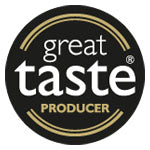Bought this as part of a gift for a green tea expert and they said it was really lovely tea.
Plus the infuser is perfect.
I actually only ordered this tea out of curiosity, but from the first sip I was convinced. This is a perfect balance of malty tea and the subtle sweetness and aromas of chocolate. I’m not a big fan of hot chocolate as it often just tastes of sugar, but this tea has the same feeling of comfort and a ’treat’ that hot chocolate gives, while still being light and refreshing. This will now be a staple in my tea cupboard!
Of the three green or greenish teas, I source from Karma, Shangri-La Oolong is my number one favourite. I enjoy drinking this tea at any time of the day and always look forward to its wonderful colour and feel in my mouth. I brew these tea leaves at least three times and the second brew is always my favourite
Malabar Mao Feng is my green tea of choice at Karma. It is a delightful tea and a pleasure to drink. I usually get three brews from my 2.5gm leaves, the second brew after the leaves have been wet once, tasting the best.
A delightful green tea, with the unusual cachet that it does not come from China or Japan but India. I prefer to brew this tea for a shorter period than recommended. It goes very well with food and is tastes well on its own too. It also provides a satisfying mouthful, when drank with a large draft of tea, giving a full body.


